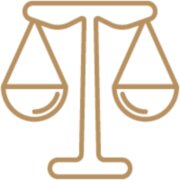Best Trusts Lawyers in Finland
Share your needs with us, get contacted by law firms.
Free. Takes 2 min.
Or refine your search by selecting a city:
List of the best lawyers in Finland
About Trusts Law in Finland
Trusts, as understood in common law jurisdictions, do not have a direct equivalent in Finland's legal system, which is based on civil law. Instead, similar outcomes can be achieved through structures like foundations, associations, wills, and contractual arrangements. These structures are governed under different regulations that provide legally protected ways to manage property, assets, and bequests according to the grantor's wishes.
Why You May Need a Lawyer
In Finland, navigating the complexities of asset management, inheritance, and estate planning without trusts can be challenging. People often seek legal advice for various reasons, including estate planning, asset protection, charitable giving, and inheritance disputes. Legal professionals can help draft documents, ensure compliance with Finnish laws, and represent you in negotiations or legal proceedings. They can also provide tailored advice on how to structure your assets effectively within the Finnish legal context.
Local Laws Overview
Finnish law encompasses several key areas when dealing with matters traditionally related to trusts:
Inheritance Law: Governed by the Inheritance Code (Perintökaari), it dictates how assets are distributed upon an individual's death, allowing for wills and legal heirs.
Contract Law: Civil Code provisions allow for private agreements that can replicate certain trust-like arrangements.
Foundations Act: Concerns establishing foundations for charitable purposes, which can serve as an alternative to trusts.
Company Law: Legal structures such as limited liability companies may be used for asset management purposes.
A profound understanding of these laws is crucial for setting up effective legal structures for asset management and protection.
Frequently Asked Questions
What is the closest equivalent to a trust in Finland?
In Finland, private foundations, associations, and companies can be used to achieve similar outcomes as trusts.
Can I establish a trust in Finland?
Finland does not formally recognize common law trusts, but legal mechanisms like foundations and other structures serve similar functions under Finnish law.
How is inheritance handled in Finnish law?
Inheritance is governed by the Inheritance Code, which encapsulates the rights of legal heirs and allows for wills to designate estate distribution.
Are there tax implications for creating a foundation?
Yes, establishing and operating a foundation in Finland involves certain tax obligations. Consulting with a legal expert can provide clarity on applicable taxes.
Can foreigners benefit from Finnish legal structures similar to trusts?
Foreigners can utilize legal structures in Finland, though it is advisable to seek expert legal advice to navigate local regulations effectively.
Is it possible to challenge a will in Finland?
Yes, a will can be contested in Finland on grounds such as lack of testamentary capacity or undue influence. Legal proceedings can be complex and require professional assistance.
How are assets protected under Finnish law?
Assets can be protected through tailored legal arrangements, including the use of companies, foundation structures, and thorough contractual agreements.
How does one prove legal ownership of assets?
Legal ownership is typically proved through documentation, including title deeds, registration, and contractual agreements conforming to Finnish law.
Are there charitable giving laws in Finland?
Yes, Finnish law provides regulations around charitable giving, including stipulations for tax-deductible donations and the establishment of charitable entities like foundations.
What role does a lawyer play in managing estate planning?
A lawyer provides critical assistance in structuring legal documents, ensuring compliance with relevant laws, advising on tax matters, and resolving disputes regarding asset distribution.
Additional Resources
For further assistance, consult the following resources:
- Ministry of Justice: Provides comprehensive legal information and guidance.
- Finnish Tax Administration: Offers detailed insights regarding tax obligations.
- Foundation Supervisory Authority: Oversees the establishment and regulation of foundations.
- Finnish Bar Association: Can help you find a qualified legal professional specializing in trusts and estates.
Next Steps
If you require legal assistance concerning trusts or related matters in Finland, consider the following steps:
- Identify your specific legal needs and objectives.
- Consult with a qualified legal practitioner specializing in estate planning, asset management, or other relevant areas.
- Gather relevant documents and information to facilitate the legal consultation process.
- Develop a legal strategy with your attorney to effectively address your requirements.
Seeking professional legal advice can significantly impact the successful management of your assets within the Finnish legal framework.
Lawzana helps you find the best lawyers and law firms in Finland through a curated and pre-screened list of qualified legal professionals. Our platform offers rankings and detailed profiles of attorneys and law firms, allowing you to compare based on practice areas, including Trusts, experience, and client feedback.
Each profile includes a description of the firm's areas of practice, client reviews, team members and partners, year of establishment, spoken languages, office locations, contact information, social media presence, and any published articles or resources. Most firms on our platform speak English and are experienced in both local and international legal matters.
Get a quote from top-rated law firms in Finland — quickly, securely, and without unnecessary hassle.
Disclaimer:
The information provided on this page is for general informational purposes only and does not constitute legal advice. While we strive to ensure the accuracy and relevance of the content, legal information may change over time, and interpretations of the law can vary. You should always consult with a qualified legal professional for advice specific to your situation.
We disclaim all liability for actions taken or not taken based on the content of this page. If you believe any information is incorrect or outdated, please contact us, and we will review and update it where appropriate.
Browse trusts law firms by city in Finland
Refine your search by selecting a city.
















